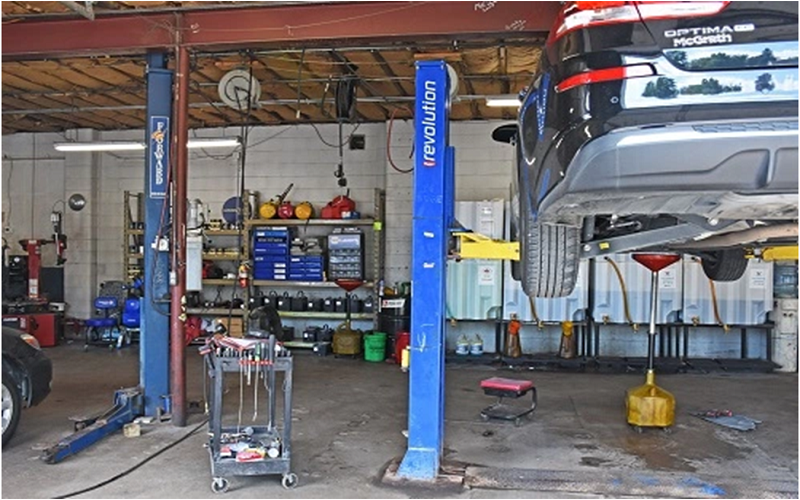Introduction to Light-Duty Diesel Vehicles
Light-duty diesel vehicles are a prominent segment in the automotive industry, known for their durability, fuel efficiency, and torque. These vehicles are commonly used for personal transportation, as well as for commercial purposes such as delivery trucks and light-duty towing. Repairing light-duty diesel vehicles requires specialized knowledge and tools due to their unique engine design and operating principles.
Understanding Diesel Engine Basics
What Sets Diesel Engines Apart
Diesel engines differ from gasoline engines primarily in their ignition process. While gasoline engines rely on spark plugs to ignite a mixture of air and fuel, diesel engines compress air to a high temperature, causing the diesel fuel to ignite spontaneously. This compression ignition process is more efficient and provides better torque output, making diesel engines ideal for heavy-duty applications.
Components of a Diesel Engine
- Cylinder Block and Head: The foundation of a diesel engine, housing the cylinders, pistons, and valves.
- Fuel Injection System: Delivers precisely metered amounts of diesel fuel into the combustion chamber at the right time.
- Turbocharger: Compresses incoming air to increase its density, improving combustion efficiency.
- Cooling System: Keeps the engine operating at an optimal temperature by circulating coolant through passages in the engine block and head.
- Exhaust System: Removes exhaust gases from the engine and includes components such as the exhaust manifold, diesel particulate filter (DPF), and catalytic converter.
Common Light-Duty Diesel Engine Issues
Fuel System Problems
- Injector Issues: Diesel fuel injectors can become clogged or malfunction over time, leading to poor engine performance and excessive emissions.
- Fuel Contamination: Water or other contaminants in the fuel can damage injectors and cause engine misfires or stalling.
- Fuel Pump Failure: The fuel pump is responsible for delivering fuel from the tank to the injectors. Failure can result in a loss of engine power or stalling.
Turbocharger Malfunctions
- Turbo Lag: Delayed response from the turbocharger can result in sluggish acceleration, often caused by worn bearings or a buildup of carbon deposits.
- Boost Pressure Issues: Leaks or restrictions in the intake or exhaust system can lead to inadequate boost pressure, reducing engine performance.
- Turbocharger Failure: Severe damage to the turbocharger, such as a broken impeller or seized bearings, requires replacement to restore engine power.
Emission Control System Failures
- DPF Clogging: Diesel particulate filters trap soot particles from the exhaust, but they can become clogged over time, leading to reduced engine power and increased fuel consumption.
- Selective Catalytic Reduction (SCR) System Issues: Problems with the SCR system, which reduces nitrogen oxide emissions, can result in failed emissions tests and decreased fuel efficiency.
Diagnostic Techniques for Light-Duty Diesel Engines
On-Board Diagnostics (OBD) System
Modern light-duty diesel vehicles are equipped with an OBD system that monitors various engine parameters and emissions control components. By connecting a diagnostic scan tool to the vehicle’s OBD port, technicians can retrieve fault codes and perform system tests to identify issues quickly and accurately.
Visual Inspection
A thorough visual inspection of the engine compartment can reveal signs of wear, leaks, or damage to components such as hoses, belts, and electrical connectors. Inspecting the exhaust system for leaks or corrosion is also essential for diagnosing emission-related problems.
Performance Testing
Dynamic testing, such as road testing the vehicle under load conditions, can help diagnose drivability issues such as hesitation, rough idle, or lack of power. Monitoring parameters such as fuel pressure, boost pressure, and exhaust gas temperatures during performance testing provides valuable diagnostic information.
Repair and Maintenance Procedures
Fuel System Service
Routine maintenance of the fuel system includes cleaning or replacing fuel filters, inspecting and adjusting injector timing, and performing injector cleaning or replacement as needed. Regularly draining water from the fuel filter and using high-quality diesel fuel can help prevent fuel system problems.
Turbocharger Maintenance
Inspecting the turbocharger for signs of oil leaks, excessive play in the turbine or compressor wheel, and proper operation of the wastegate or variable geometry mechanism is essential for maintaining turbocharger performance. Regular oil changes using the manufacturer’s recommended oil grade and interval can prolong turbocharger life.
Emission System Repairs
Cleaning or replacing the diesel particulate filter and performing regeneration procedures to burn off accumulated soot are common maintenance tasks for emission control systems. Diagnosing and repairing faults in the SCR system may require specialized equipment and training to ensure compliance with emissions regulations.
Special Considerations for Light-Duty Diesel Repair
Environmental Regulations
Complying with local and federal emissions regulations is crucial when repairing light-duty diesel vehicles. Technicians must be aware of the latest emissions standards and perform repairs using approved methods and components to avoid fines and penalties.
Safety Precautions
Working on diesel engines requires precautions to prevent injury from high-pressure fuel injection systems, electrical hazards, and moving engine components. Proper personal protective equipment (PPE) such as gloves, eye protection, and hearing protection should be worn at all times.
Training and Certification
Obtaining certification from organizations such as the National Institute for Automotive Service Excellence (ASE) in diesel engine repair demonstrates competency and expertise in servicing light-duty diesel vehicles. Continuing education and training are essential for staying current with advancements in diesel engine technology.
Conclusion: Mastering Light-Duty Diesel Repair
Repairing light-duty diesel vehicles presents unique challenges and opportunities for automotive technicians. By understanding the fundamentals of diesel engine operation, diagnosing common issues, and following proper repair and maintenance procedures, technicians can ensure optimal performance, reliability, and compliance with emissions regulations for their customers’ vehicles. With ongoing training and a commitment to excellence, mastering light-duty diesel repair can be a rewarding career path in the automotive industry.

